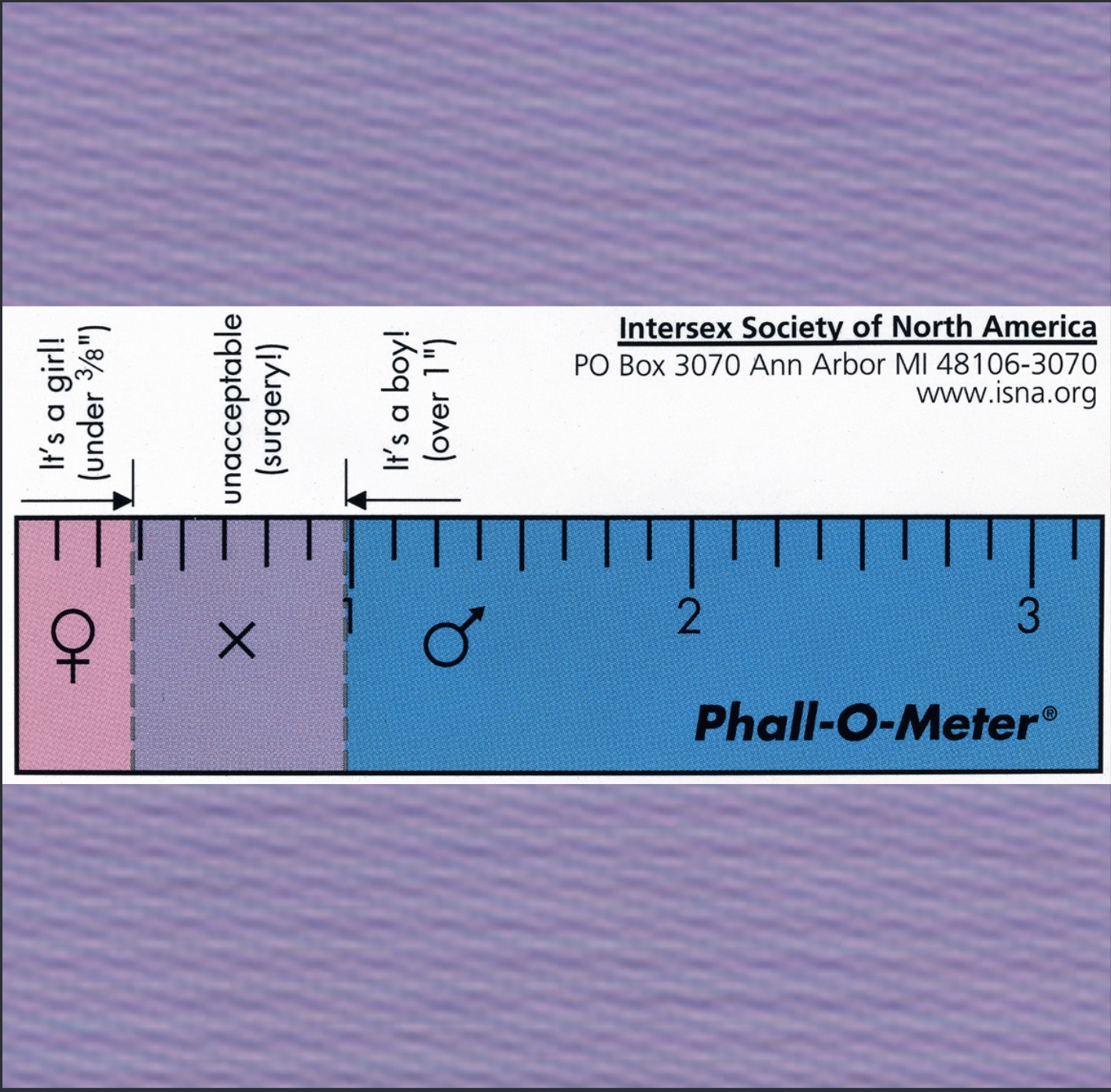Recent Study on the Frequency of Genital Surgeries on Children Performed in Germany. Summary of the main findings
With the publication “On the current state of cosmetic surgery of ‘ambiguous’ genitalia in childhood” by Ulrike Kloeppel[1], for the first time sound quantitative data on cosmetic genital surgeries performed on children throughout Germany is available. The study is a retrospective assessment of data from the DRG-statistics (hospital statistics based on case rates) on “feminising” and “masculinising” genital surgeries carried out in German hospitals between 2005 and 2014.[2] The study focuses on children under the age of 10 diagnosed with variations of sex characteristics. To summarize the main findings:
- On average, 99 “feminising” surgeries (plastic surgeries on vulva, vagina, clitoris, and perineum) per annum were carried out in the period of investigation. In 2012 to 2014 the average number was still 91 procedures per annum. Most “feminising” surgeries were plastic operations on the vulva (including perineum), the other procedures were clitoral surgery and vagina constructions. The average number of operations on the clitoris, which have clearly cosmetic reasons, was still 12 procedures per annum in the period 2012 to 2014; for vagina constructions the average number was 8.
- The relative frequency of “feminising” genital surgeries – the total number of procedures analysed in relation to the number of diagnoses – over the period of investigation showed no clear trend, and certainly no significant decline.
- The number of “masculinising” surgeries (plastic surgeries of the scrotum, testicles, and penis, including “corrections of hypospadia”, that is, relocating the urethral opening to the top of the penis) rose in the period under study: from an average of 1601 per annum in the period 2005 to 2007 it increased to 1617 in 2012 to 2014. Most of these procedures were relocations of the urethral opening, while 10 to 16 % of children diagnosed with “hypospadia” underwent plastic reconstructions of the penis.
- The relative frequency of “masculinising” surgeries remained almost constant over the period of investigation.
In total, the relative frequency of “feminising” and “masculinising” genital surgeries in childhood did not drop between 2005 and 2014. In the same period a remarkable change of underlying diagnoses took place:
- While the relative frequency of ‘classic’ intersex diagnoses such as “pseudo-hermaphroditism” decreased, the frequency of other diagnoses that make up the spectrum of variations of sex characteristics and which are summed up in the category “unspecified malformation of the female/male genitalia” remained constant or even increased.
It can be assumed that the underlying biological phenomena have not changed. Thus, the pressing question arises whether the shift of diagnoses is related to an increase of abortions, to a change of diagnostic practices, or a combination of both. It thus seems fitting that one of the doctors who was interviewed in the context of the study observed:
“In the past, an intersex-diagnosis served as the reason to do surgeries. Today, the non-evidence of intersexuality is used to legitimize surgeries. In this sense, the diagnosis corresponds – among other things – to medical necessity.”[3]
[1] The study has been published in German under the title: “Zur Aktualität kosmetischer Operationen ‚uneindeutiger’ Genitalien im Kindesalter” (Bulletin – Texte 42), 2016 https://www.gender.hu-berlin.de/de/publikationen/gender-bulletin-broschueren/bulletin-texte/texte-42/kloeppel-2016_zur-aktualitaet-kosmetischer-genitaloperationen/view
[2] The DRG-statistics register medical services. In principal, these services might be provided repeatedly for one and the same patient throughout a year if it comes to a readmission. Services that are part of a “chain” of treatments are summarized as one case of treatment.
[3] Quoted from U. Klöppel (2016) [footnote 1], p. 34.
[DOWNLOAD AS PDF] Genital Surgeries on Children Performed in Germany


